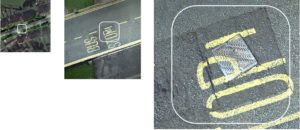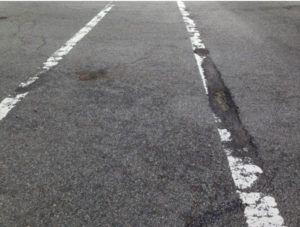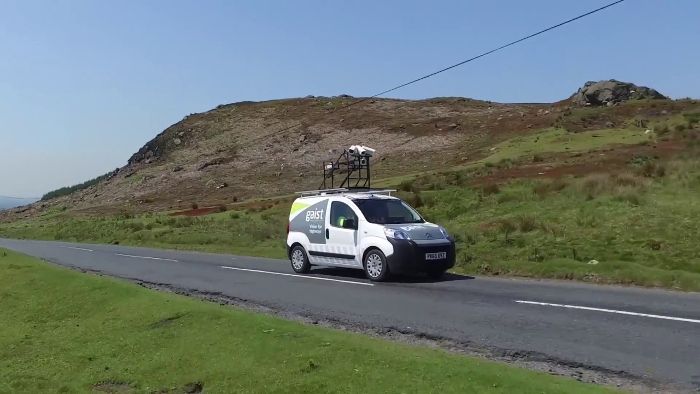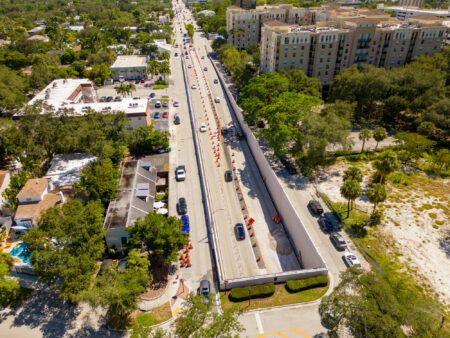The UK’s Department for Transport (DfT) has announced a national assessment of road markings that will give an insight into the current condition of local roads, sections of the National Cycle Network, and the country’s footways to help improve road safety.
 The DfT has awarded £2m (US$2.5m) to develop the most thorough understanding ever of the country’s road markings as part of a wider £350m (US$435m) funding package for improving the quality of local roads. By having analysis on the quality of nearly 100,000 miles (160,000km) of road, the DfT will have a clearer-than-ever picture of where investment is needed and will be able to advise local councils on areas that may need it most, improving road user safety on some of the country’s busiest local roads. A recently published local roads funding report from the Parliamentary Transport Select Committee showed that 11% of all local roads were in a poor condition and a further 25% showed deterioration, with the study concluding that the repairs would need £10m (US$12.4m) to address.
The DfT has awarded £2m (US$2.5m) to develop the most thorough understanding ever of the country’s road markings as part of a wider £350m (US$435m) funding package for improving the quality of local roads. By having analysis on the quality of nearly 100,000 miles (160,000km) of road, the DfT will have a clearer-than-ever picture of where investment is needed and will be able to advise local councils on areas that may need it most, improving road user safety on some of the country’s busiest local roads. A recently published local roads funding report from the Parliamentary Transport Select Committee showed that 11% of all local roads were in a poor condition and a further 25% showed deterioration, with the study concluding that the repairs would need £10m (US$12.4m) to address.
The DfT will undertake the health-check in close partnership with the Local Condition Roads Innovation Group (LCRIG), which will in turn use the services of Gaist, a SME based in North Yorkshire, that will use its machine learning artificial intelligence (AI) technology to review close to 150 million high definition (HD)  images of the country’s roads. The analysis will provide a clear assessment of where investment by councils could be targeted. Poor road markings pose an issue for all road users, from cyclists to motorists, as they can make it difficult to distinguish whether they can park on the side of the road, overtake or know how wide a lane is. This means road user safety can be put at risk due to a lack of clarity. By having a stronger road map of where markings need improvement, these issues can be rectified.
images of the country’s roads. The analysis will provide a clear assessment of where investment by councils could be targeted. Poor road markings pose an issue for all road users, from cyclists to motorists, as they can make it difficult to distinguish whether they can park on the side of the road, overtake or know how wide a lane is. This means road user safety can be put at risk due to a lack of clarity. By having a stronger road map of where markings need improvement, these issues can be rectified.
Clear road markings will also be essential for the widespread introduction of connected and autonomous vehicles (CAVs) in the UK. The DfT is also planning to assess sections of the National Cycle Network, building on the audit undertaken by cycling and walking charity Sustrans, to better understand the condition of the  network and help promote sustainable transport modes.
network and help promote sustainable transport modes.
“Road markings play a vital role in keeping everyone who is using the road safe, so making sure they’re up to standard is imperative,” said UK Transport Secretary, Chris Grayling. “This funding will allow for advanced AI learning technology to assess the condition of the markings to improve the safety of our roads for all users.”
 Paula Claytonsmith, Gaist’s managing director, added, “We are using over 146 million HD road images from our national databank and cutting-edge AI technology to assess over 96,000 miles of classified roads as part of this project. This is the largest exercise in assessing road marking readiness ever undertaken in England. We are proud to have the AI capability that puts an SME UK business at the forefront of technological advances.”
Paula Claytonsmith, Gaist’s managing director, added, “We are using over 146 million HD road images from our national databank and cutting-edge AI technology to assess over 96,000 miles of classified roads as part of this project. This is the largest exercise in assessing road marking readiness ever undertaken in England. We are proud to have the AI capability that puts an SME UK business at the forefront of technological advances.”





